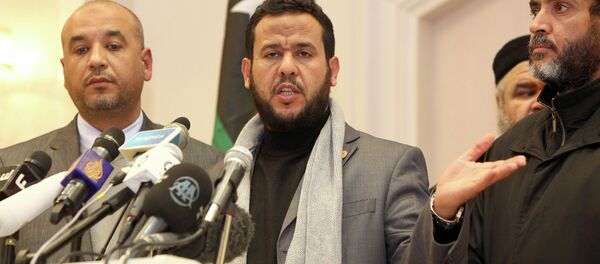A report published on March 12 by Parliament's Intelligence and Security Committee (ISC) revealed that MPs have questioned the security agencies over allegations that "information obtained through GCHQ's interception activities may have enabled them to 'rig' ongoing civil and criminal cases" brought by victims of a joint MI6-CIA 'rendition' and torture operation.
The victims concerned are Abdul-hakim Belhadj, a former opponent of Libyan leader Colonel Gaddafi, and his wife Fatima Boudchar, as well as the al Saadi family — of whom Sami al Saadi was also an opponent of the former Libyan leader.
All were subjected to kidnapping and forcible transfer to Gaddafi's prisons in 2004, in an operation which was found to have been orchestrated by MI6 and the CIA after the fall of the Libyan regime in 2011.
The families are being assisted in their current legal challenges against the UK Government over their rendition and subsequent illegal surveillance by the legal charity Reprieve. A hearing on March 13 at the Investigatory Powers Tribunal is seeking to determine whether — if the Government illegally intercepted legally privileged communications between the families and their lawyers — victims and the public have a right to know.
"Court Cases will be Skewed in the Government's Favour"
The hearing comes a day after an influential group of British MPs called for a new law governing the way the UK intelligence agencies spy on people's communications after admitting the current system "lacks transparency".
The ISC report said the intelligence agencies were acting under outdated and complicated laws and called for a new all-embracing law to be introduced. "The legal framework is unnecessarily complicated and — crucially — lacks transparency. Our key recommendation therefore is that all the current legislation governing the intrusive capabilities of the security and intelligence Agencies be replaced by a new, single Act of Parliament," the report said.
Hearing underway this morning on Reprieve case — re Govt's illegal snooping on lawyers & torture victims: http://t.co/EhYQ8JOCZC
— Reprieve (@Reprieve) March 13, 2015
Cori Crider, a director at Reprieve and one of the families' lawyers, said: "State snooping on confidential lawyer-client communications carries the serious risk that court cases will be skewed in the Government's favour.
"The hearing at the Investigatory Powers Tribunal may answer a crucial question: can the Agencies engage in wholesale violation of the law like this for years, and never have to tell anyone about it?"
"Victims of MI6-sponsored rendition and torture — and the wider public — have a right to know if they were illegally spied on, so that Reprieve can urgently seek to restore their right to a fair trial."




